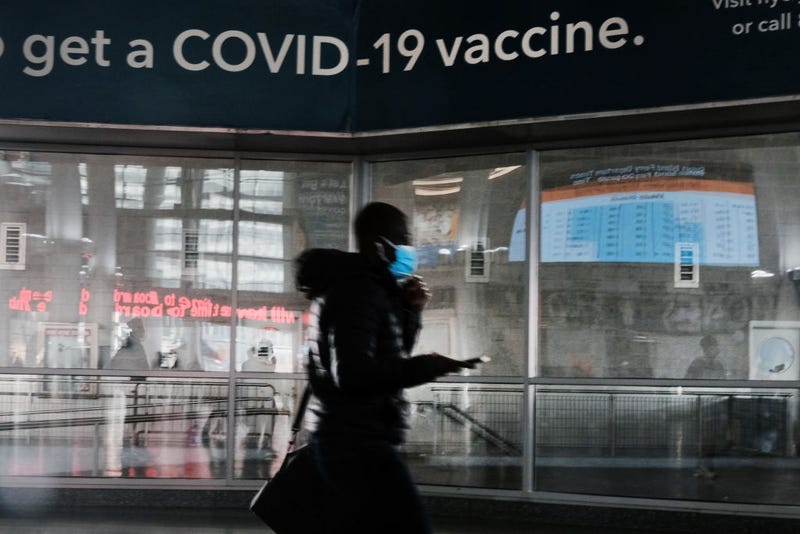
NEW YORK (WCBS 880) — While business leaders in New York City had been looking for additional guidance from government leaders on vaccinations, many felt blindsided when Mayor Bill de Blasio on Monday announced a vaccine mandate for all private sector employees.
"So far as I know there has been no outreach to business as a heads up," said Kathryn Wylde, the head of the influential Partnership for New York City. "We have heard nothing in advance of this announcement in the business community."
Wylde said many big businesses want their employees vaccinated, but she doesn't agree with how the mayor handled the situation.
"The way he's gone about it is disappointing and seems unnecessary," Wylde told WCBS 880. "There's a real lack of clarity on how employers are expected to proceed."
Wylde said it's unclear whether the mandate will include a testing option and it's also not clear who will enforce the mandate.
"This leaves open big questions as to what will be expected of employers. They are not in a position to happily become enforcement agents for public health policy that should fall to the government," she told 1010 WINS. "So this is a lack of clarity and it's just a point in time where what we need is consistent, clear, well thought out policies, we don't need surprises."
"Employers support vaccine policies, but federal, state and city government all are taking a different approach," she added.
It's expected many legal questions will arise from the new city mandate.
Even as a similar federal mandate from President Joe Biden is getting held up in court, employment attorney Jon Bell said a local mandate is different.
"The state and city governments have more power in this than federal government. Federal governments do not have this authority," Bell said, adding that it's likely the city will have to accommodate medical and religious exemptions, but he expects any other challenges to fail. "Other than those two exemptions, I don't think that employees have much of a leg to stand on."
"It's well within a state and city's authority to issue these mandates," Bell said pointing to a Supreme Court case from 1905, Jacobson v. Massachusetts. "The Supreme Court basically ruled that states and local governments have general police powers and they can pass these laws to protect the health and safety and general welfare of the public."
Mayor Bill de Blasio, meanwhile, appeared confident about fending off any possible legal challenges.
"Our health commissioner does have the legal right to say, here's something necessary to protect the health of all New Yorkers," de Blasio said. "We have here an immediate set of circumstances and we have the legal right of the Health Commissioner to keep the people of this city safe. That is something that's been proven time and time again. We've been in court many times on a variety of issues – state court, federal court. We have, every single time, been validated by the courts. When the Health Commissioner believes there is a pressing public health threat, he has the ability to act in that situation. That's the broad strokes now."
The city's Corporation Counsel Georgia Pestana stressed "the health commissioner has the authority to issue a mandate like this to protect the public health and his authority to do that has been upheld time and again."

